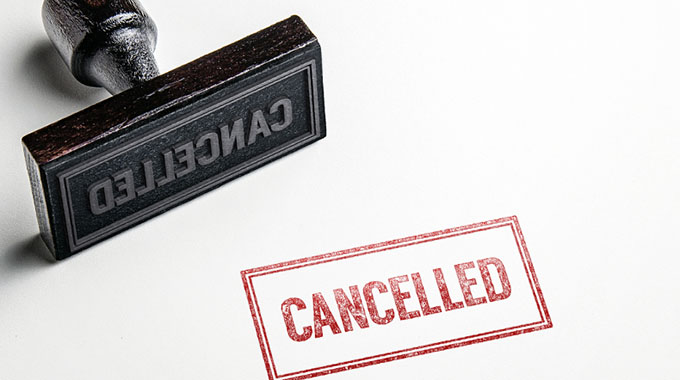ZimParks suspends issuance of fishing permits for Kariba

Walter Nyamukondiwa Kariba Bureau
ZIMBABWE has suspended the registration of new kapenta fishing permits for Lake Kariba as part of measures to ensure the sustainable exploitation and management of fish in the lake.
The move seeks to trim the number of fishing rigs operating in the lake, which have trebled to 1 500, beyond the scientifically proven sustainable threshold of 500.
Official figures show that there are 399 rigs on the Zimbabwean side and 1 076 on the Zambian side.
However, several other pirate rigs remain unaccounted for in areas around Binga, exerting pressure on the lake through overexploitation of the resource.
This has constrained breeding and recovery of the generally fast-reproducing fish.
Operators have been feeling the pinch, with production dropping from a peak of 27 000 tonnes in 1999 to around 9 000 tonnes in recent years, amid fears of a further decline if no immediate measures are taken to replenish the stock.
Other measures being taken by both countries involve adopting a 10-day full moon stoppage each month by 2021, which is currently being implemented by Zambia.
Zimbabwe and Zambia have agreed to ban the use of monofilament nets.
Kapenta fisheries on the Zimbabwean side of Lake Kariba currently observe a seven-day lunar stoppage, which has reduced the fishing effort by 25 percent.
Zimbabwe Parks and Wildlife Management Authority (ZimParks) spokesperson Mr Tinashe Farawo announced last week that registration of new permits had been suspended with immediate effect.
“We can confirm that registration of new kapenta rigs will no longer be approved.
“The rigs which are operating in Lake Kariba have reached the maximum required number.
“We have already passed the 500 kapenta fishing rigs threshold which means 275 rigs on the Zimbabwean side and 225 on the Zambian side. We have already passed that limit. This has led to overfishing of the resources,” said Mr Farawo.
He said the move was a scientific decision that seeks to preserve the kapenta industry. Some experts have attributed the decline in fish and kapenta to the disruptive effects of the exotic crayfish which is accused of disturbing breeding grounds and eating small fish.
While the move has been welcomed as an important step in reaching equilibrium in the exploitation and replenishment of fish stock in the lake, players in the sector said there was need to rationalise existing permits.
Operator Mr Eddie Chirayi said the number of permits issued should match the number of rigs in the lake as some permit holders had no rigs but were leasing them out.
“The move is welcome, but we have a situation where some permit holders have no rigs, while some people have rigs, but do not have permits, which has affected viability of the sector as those who have permits lease them out for a fee,” said Mr Chirayi.
Permit holders currently charge $6 000 per month while ZimParks charges $7 000 per quarter for a fish permit, which makes leasing of the permits a lucrative venture.
Kapenta Workers Union of Zimbabwe secretary-general Mr Rhodes Madyira welcomed the move, saying it would help address overfishing. He said there was, however, need to fully utilise the permits already issued.
“Some are holding on to permits for speculative purposes, thereby depriving work opportunities for our members. There are some rigs that are grounded, but the owners have permits,” said Mr Madyira.
The barring of new entrants into the lucrative, but overly exploited kapenta fish industry is expected to allow progressive attrition until the scientifically proven capacity of rigs is reached.










Comments